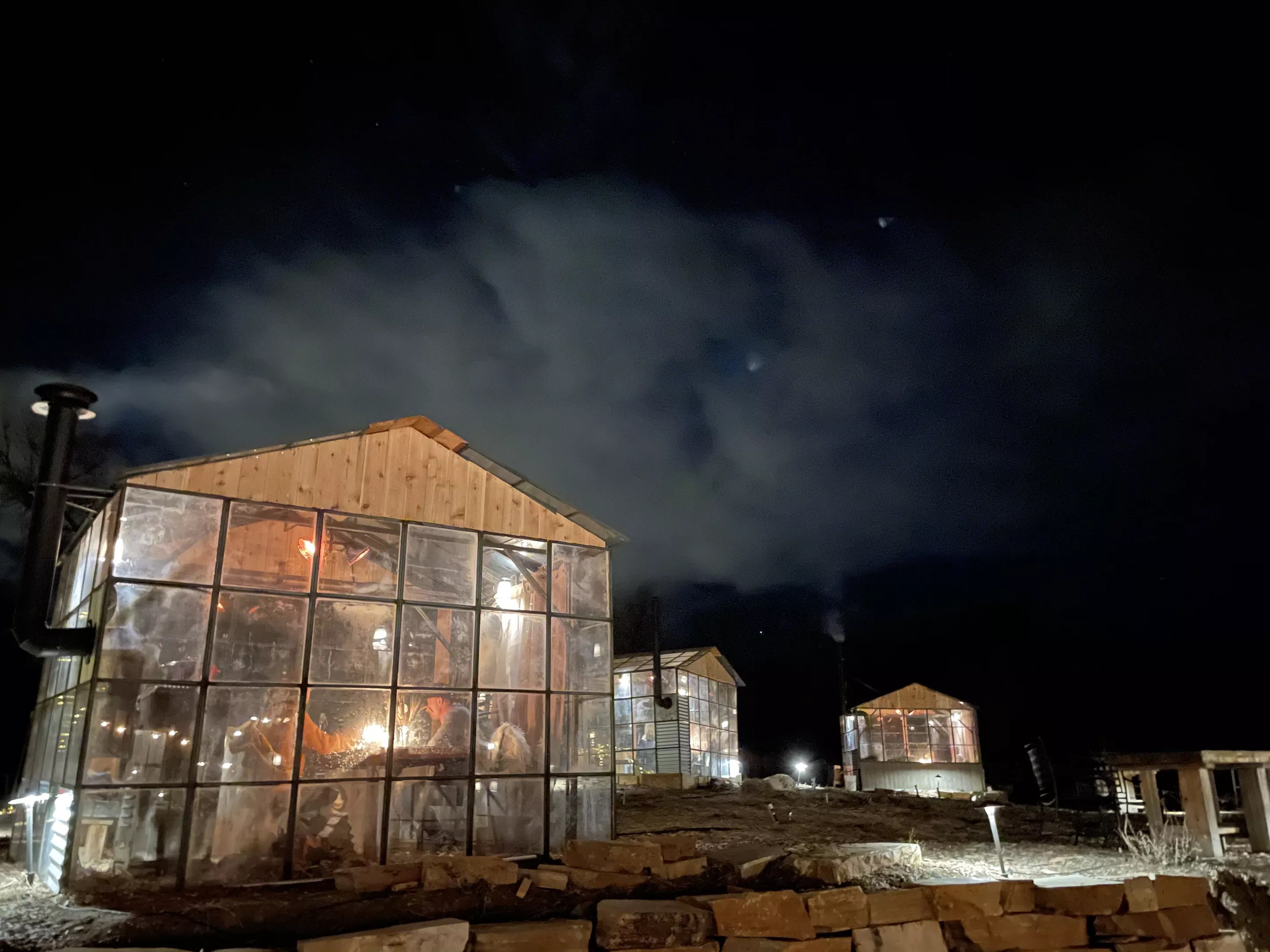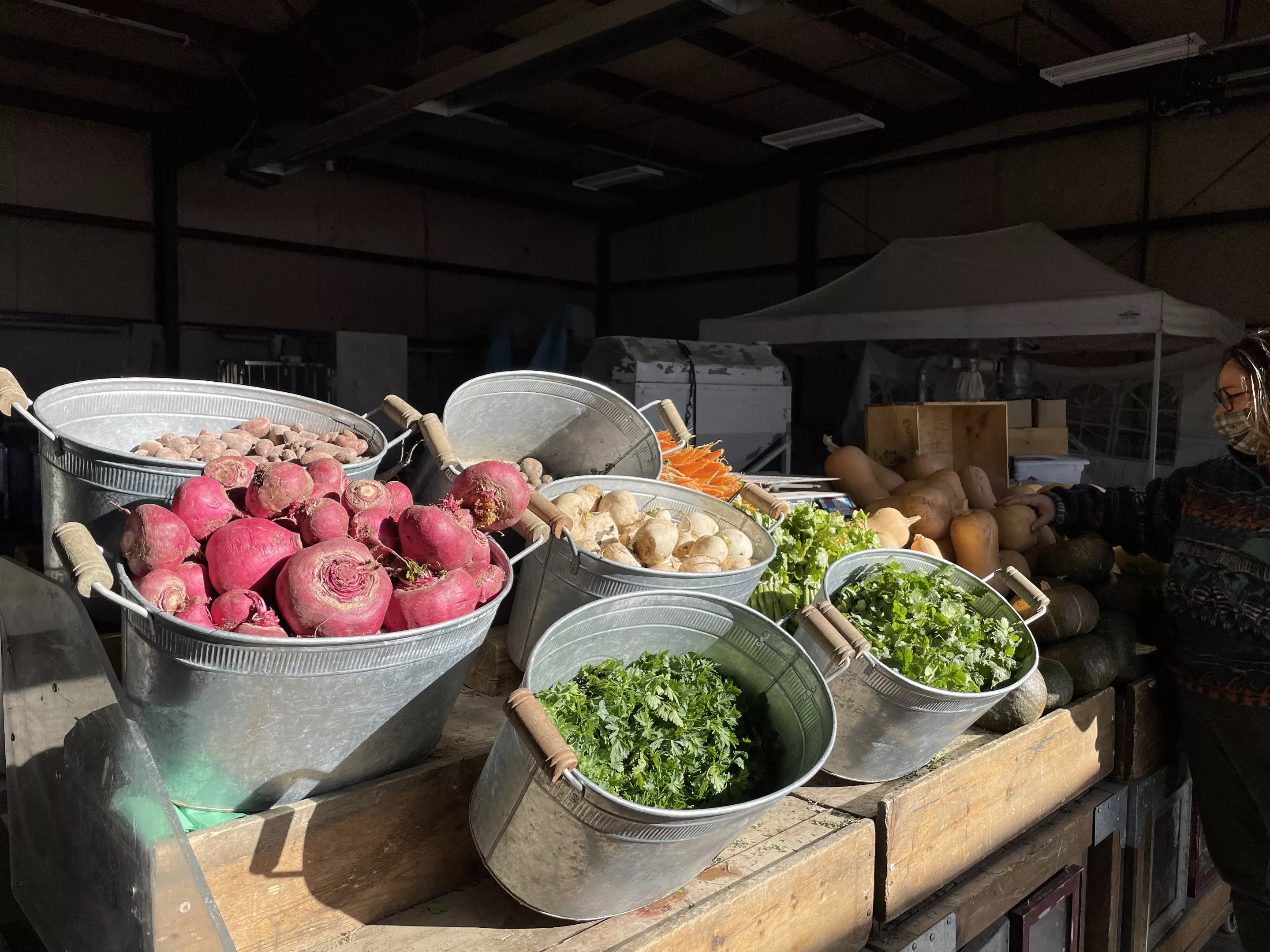
Courtesy of Black Cat Bistro

Audio By Carbonatix
Some restaurants serve food grown on local farms. Eric and Jill Skokan moved their restaurant, Black Cat Bistro, to their own farm at the beginning of the coronavirus pandemic. Some restaurants compost. The Skokans are using compost to help heat the dining cabanas that have kept guests at their farm cozy all winter.
These are just a few of the things that the Skokans have accomplished over the past year that recently earned Black Cat the Virginia Patterson Business of the Year award from the Boulder Chamber. Just about the only thing they haven’t done is reopen the dining rooms of Black Cat Bistro and its sibling, Bramble & Hare, both on the Pearl Street Mall in downtown Boulder. But that could happen soon, too.
“I have not even entertained the possibility until the past week,” Eric Skokan says, noting that the intimate dining rooms and small kitchen that connect the two make it difficult and unsafe to operate the restaurants, even at reduced capacity.
But he’s found other ways to keep the Black Cat name in front of customers, keep his employees working and keep the farm providing meats, grains and produce to Boulder County residents. First came the expansion of Black Cat’s market and farm stand at 4975 Jay Road. While the closing of restaurant dining rooms was an obvious and visible effect of the pandemic on diners, Skokan points out that behind the scenes, there was a major supply-chain disruption (of which the great toilet paper shortage of April 2020 was only one result). “We were very quickly able to step in,” he says. “Sommeliers became counter help; front waitstaff became labeling and packaging experts. It was a complete retooling of the whole operation. We reinvented ourselves as a farm-to-table grocery store.”
Next came Mabel, the farm-delivery truck. “We were hearing feedback from some of our customers that they were petrified to leave their houses,” Skokan explains. “And some of our customers were buying for neighbors who couldn’t leave their homes.”
So Eric and Jill renovated an old ice cream truck and made the rounds of Boulder neighborhoods with fresh produce, meats, bread, pantry staples and, yes, toilet paper. Eventually, grocery stores and other suppliers restocked and became more efficient at curbside pick-up and home delivery, so Mabel is retired for the time being. “The strong drivers that created the need for Mabel aren’t there anymore,” Skokan notes. Even so, he might get behind the wheel again when he retires, he says – not out of necessity, but just because he enjoyed meeting customers in their neighborhoods so much.

Produce from Black Cat Farm is available from the farm stand nearly year-round.
Courtesy of Black Cat Bistro
Black Cat Farm also gave the Skokans the ability to build a safe dining environment for their guests. During the summer, dining was al fresco, but the chef knew that winter was coming, so he built cabanas – using reclaimed greenhouse glass that was once part of the region’s thriving carnation-growing industry – on the property around the barn, reconditioned some antique wood-burning stoves and turned the idea of an occasional farm dinner into a nightly occurrence. “I love my commute from my farmhouse down to the barn every night,” he jokes.
The new setup can only accommodate 25 diners at once (compared to 80 at the restaurant), so there’s less revenue while more labor is required. Skokan even hired a wood chopper (a commercial pilot who was looking to flex his lumberjack muscles a few nights a week) to help keep the stoves fueled. Almost all of the wood comes from the farm itself, since keeping fences and pastures clear of growth is part of the normal routine.
The compost heating idea was another way to use existing resources while cutting costs, since refilling propane tanks to heat outdoor dining areas is an expensive proposition. “Inside the compost pile, it’s 125 degrees [Fahrenheit],” Skokan points out. “Water is circulated through the pile in pipes, and a pump transfers the heated water to three 1,000-gallon tanks.” The hot water is then piped to the dining cabanas as well as to a new greenhouse he recently built. The wood stoves and a minimal number of propane tanks supplement the radiant heat from the hot water pipes.
The business has been able to survive the past year thanks to the “intelligence and fearlessness of a lot of our staff,” Skokan says. Now he’s beginning to look into ways to reopen the restaurants while keeping employees and customers alike safe. That could take the form of weekend-only dining at first, or no more than four nights a week, serving the Bramble & Hare menu in both dining rooms to allow customers to spread out through the two dining rooms.
Whatever form the reopening plan takes, it will surely follow the same innovative and thoughtful approach as the rest of Black Cat’s undertakings.
Black Cat Farm is open for dinner nightly at 9889 North 51st Street in Longmont; visit the restaurant’s website for reservations and call 303-444-5500 for details.